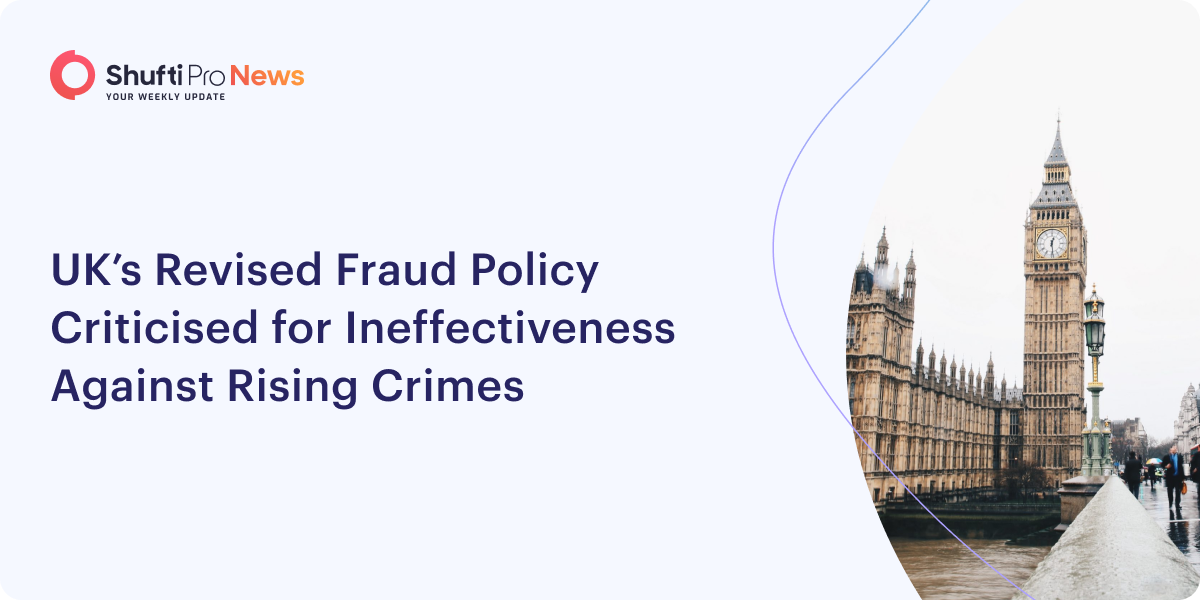News
Few Hours Left! Was Mail-in-Ballots Successful?
The US elections 2020 have been exhilarating yet stressful for all the residents. The coronavirus...
 Explore More
Explore More
News
Canadian financial watchdog geared up for FATF compliance
The Financial Transactions and Reports Analysis Centre of Canada (FINTRAC) plans on closely regul...
 Explore More
Explore More
News
The IRS Issues Last Minute-Warning To Avoid Tax Penalties
A new warning has been issued by the IRS with the introduction of an identity protection pin that...
 Explore More
Explore More
News
Louisiana Approves First Regulation Requiring Age Verification to Access Pornography Sites
Louisiana’s House of Representatives passed the bill against age verification in the porn industr...
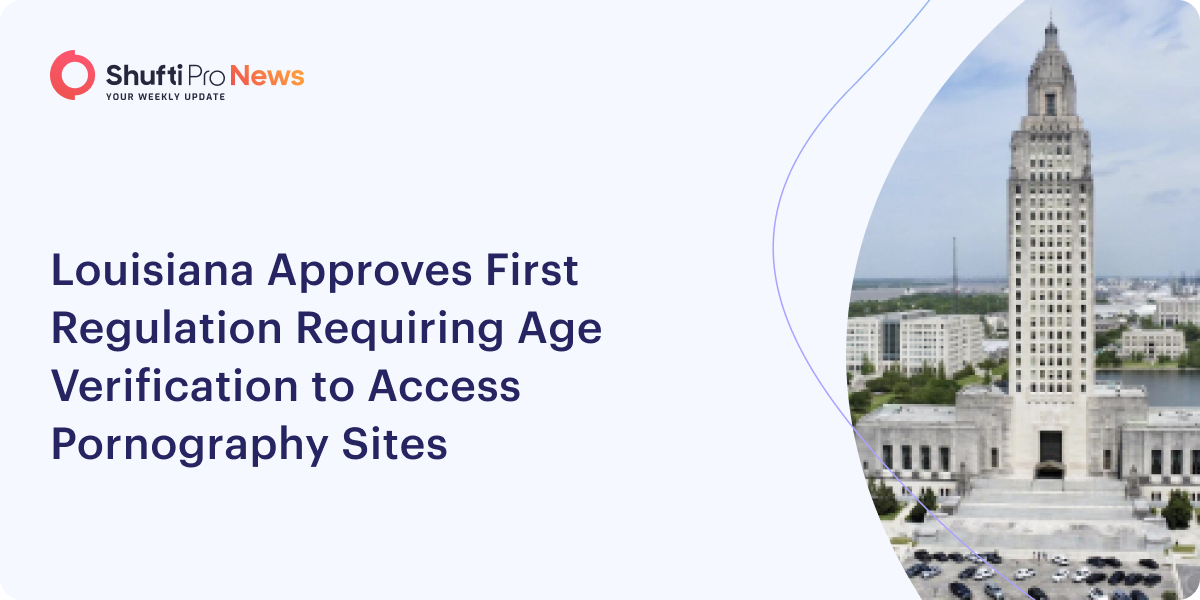 Explore More
Explore More
News
HKMA Issues Guide for Regtech Adoption in Customer Monitoring
The second guide published by the HKMA will allow banks to test their internal measures and infra...
 Explore More
Explore More
News
UAE Endorses Legal Framework for Unlicensed Virtual Asset Platforms
The United Arab Emirates (UAE) issued new strict anti-money laundering regulations for unlicensed...
 Explore More
Explore More
News
Investment platforms on target of Criminals to Launder Stolen COVID Relief funds
Sophisticated fraudsters with expert knowledge in tech are stealing the COVID-19 relief funds fro...
 Explore More
Explore More
News
5 Billion Unique Credentials Circulating on Darknet
According to the report released by security firm Digital Shadows, a total of 15 billion user cre...
 Explore More
Explore More
News
BC Law Society Holds Honorary Consul of Ukraine Accountable for Failure to Prevent Money Laundering
BC Law Society holds Ukraine’s Honorary Consul accountable for failing to prevent money launderin...
 Explore More
Explore More
News
After China, Japanese Officials Considering to Introduce Digital Currency too
China has begun trials for its digital assets and issued 10 million yuan last week. The efforts o...
 Explore More
Explore More
News
BaFin Threatens Deutsche Bank of Fines Over Weak AML Controls
Germany’s Financial Watchdog BaFin is not satisfied with the efforts of Deutsche Bank AG to contr...
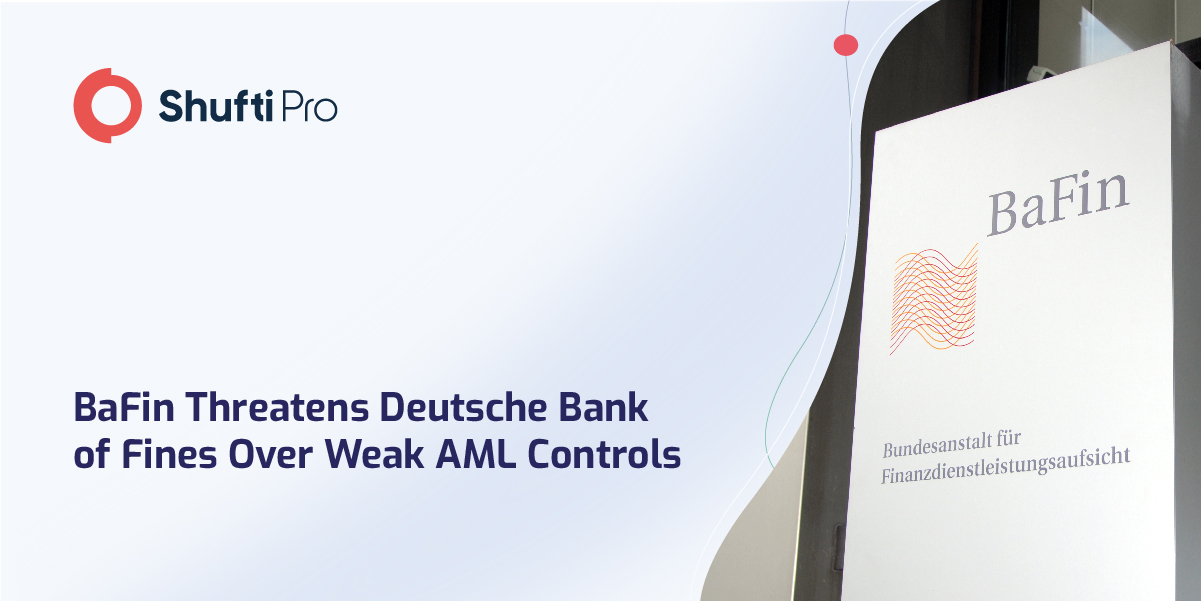 Explore More
Explore More
News
Australian Federal Police Issues Warning on Valentine’s Day Financial Scams
Australian authorities have warned the public of new Valentine’s Day scams aimed at singles...
 Explore More
Explore More
News
Singapore Now Requires Developers to Comply with New AML/TF Regulations
The Singaporean government will implement a new anti-money laundering and anti-terrorism financin...
 Explore More
Explore More
News
FCA Warns Against Unregistered Crypto ATM Use
The Financial Conduct Authority (FCA) has begun taking action against unauthorised crypto ATMs in...
 Explore More
Explore More
News
Banks Ordered by BSP to Enhance the Filing of Suspicious Reports
MANILA, Philippines – In an attempt to ramp up its fight against financial crimes, the Bang...
 Explore More
Explore More
News
SRA Receives Fewer AML Violation Reports from England & Wales Despite Sanctions Drive
Anti Money Laundering (AML) violations in England & Wales reported to the Solicitors Regulati...
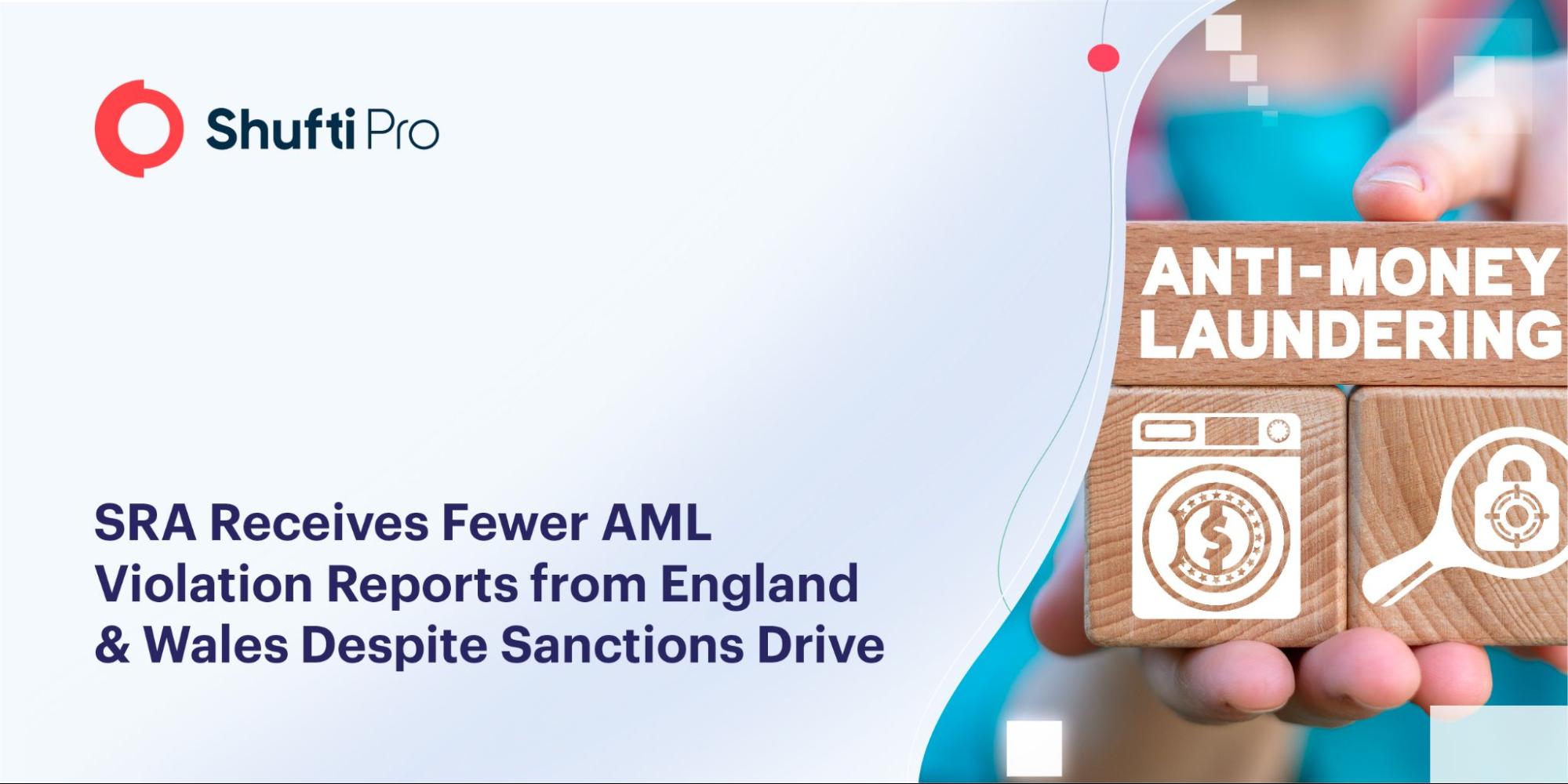 Explore More
Explore More
News
Scotland Police Give Warnings Due to the Rise in Cybercrime
Highland Police is taking a major initiative to warn the businesses of a spike in cybercrime and ...
 Explore More
Explore More
News
Japan Calls for Disclosure of Major Company Shareholders
Japan’s Ministry of Justice will require firms to submit details of their major shareholders, als...
 Explore More
Explore More
News
N26 Banned by Italian Central Bank for Insufficient Money Laundering Controls
The central bank of Italy has banned German digital bank N26 from onboarding Italian customers af...
 Explore More
Explore More
News
Drug Trade Proceeds Laundered Through Digital Currency ATMs, Says DEA
According to the U.S Drug Enforcement Administration’s report, digital currency ATMs are growingl...
 Explore More
Explore More
News
Cybercriminals demanded $3 million ransom from Travelex
The hackers behind a cyber attack on a foreign exchange firm Travelex ordered to pay $3 million r...
 Explore More
Explore More
News
Ramon Abbas, Nigerian Instagram Influencer Pleads Guilty to Million-dollar Fraud
Nigerian instagram influencer, Ramon Abbas (Hushpuppi), admitted that he was involved in a conspi...
 Explore More
Explore More
News
FATF encourages Digital ID during Coronavirus epidemic
The Financial Action Task Force (FAFT) is advocating the use of digital identity technology to se...
 Explore More
Explore More
News
SMEs Decry Registration Hurdles Owing to SCUML Certificate
SMEs have decried hurdles in opening business/corporate accounts due to the Anti Money Laundering...
 Explore More
Explore More
News
Over £1 Million Lost to Covid Business Support Fraud in Leeds
Leeds City Council papers have shown 74 cases of Covid business support fraud where more than £1 ...
 Explore More
Explore More
News
UAE Levies Charges Over DH115 Million to Combat Money Laundering
A total of Dh115 million ($31.3 million) has been fined by the UAE in its efforts to impede money...
 Explore More
Explore More
News
FINRA Issues Guidelines Regarding Penalties for Anti-Money Laundering Violations
FINRA has issued its first-ever guidance to its member broker-dealers about the penalties that wi...
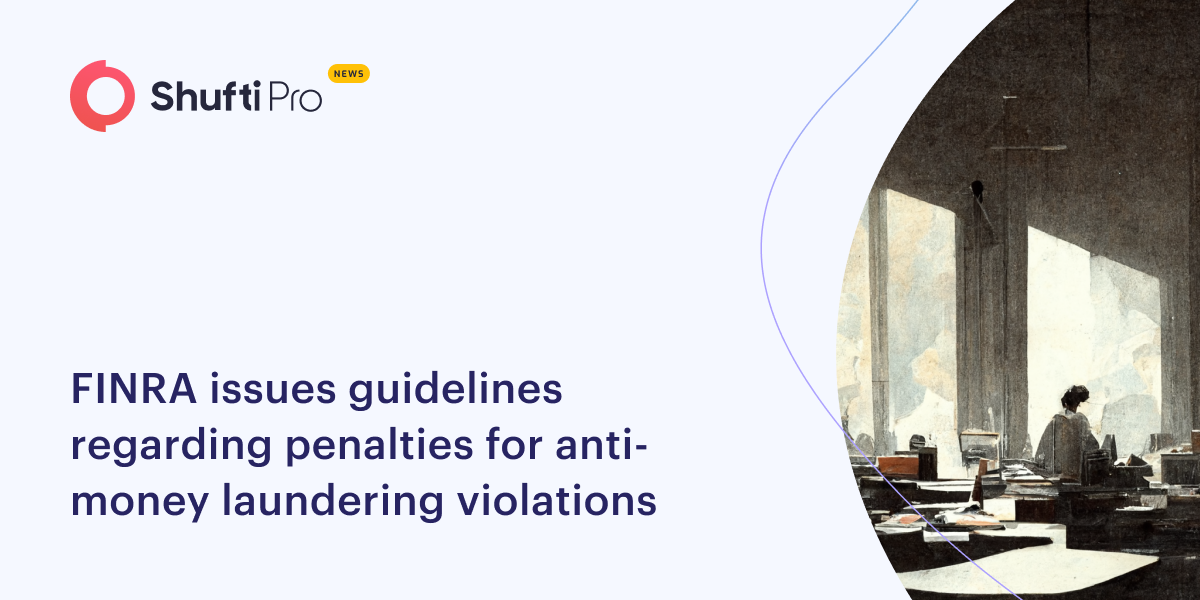 Explore More
Explore More
News
A Treasury Unit to Enforce New Anti-Money Laundering Laws in the US
A small bureau of the U.S Treasury Department will take a lead, over the next year, in filling ou...
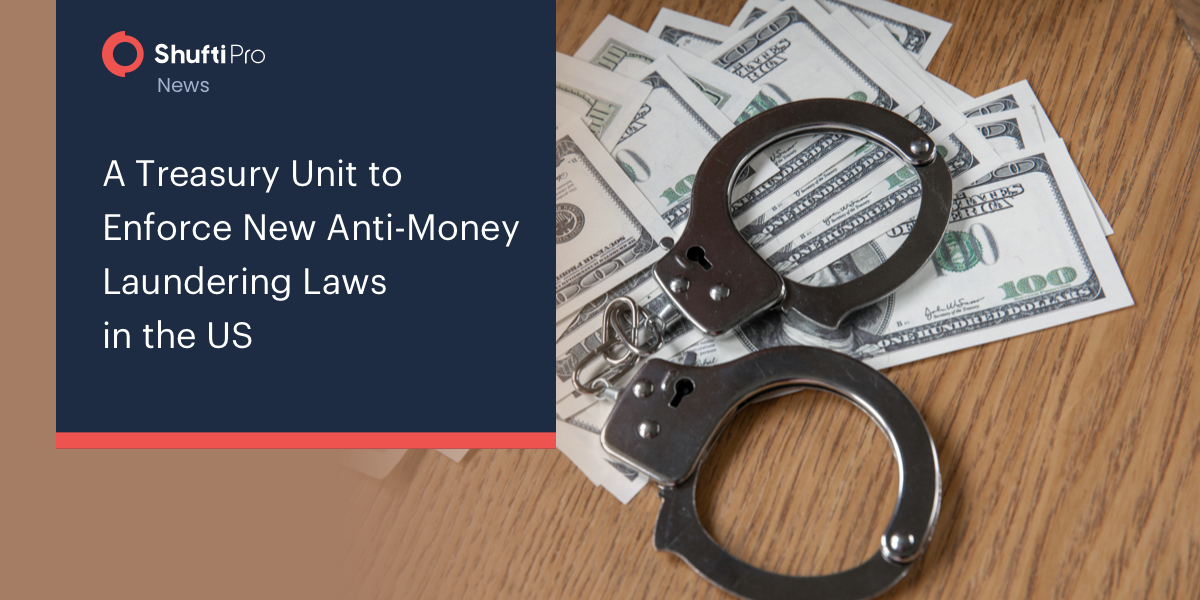 Explore More
Explore More
News
Poker Machines Being Preyed by Criminals Amidst COVID-19 Pandemic
During the five months of lockdown due to the COVID-19 pandemic, there has been a growth of 305 U...
 Explore More
Explore More
News
State Street Bank fined $1.24 million for breaching AML laws
The US-based State Street bank has been hit with million-dollar money laundering fine. The Austra...
 Explore More
Explore More
News
South Kesteven Council Strengthens AML Controls for Right to Buy Scheme
South Kesteven council tightened the anti-money laundering controls over questions raised by buye...
 Explore More
Explore More
News
Kenyan Authorities Freeze Accounts of Two Nigerian Companies for Allegedly Laundering Sh6 billion
Kenyan authorities have frozen accounts containing Sh45 million belonging to two Nigerian compani...
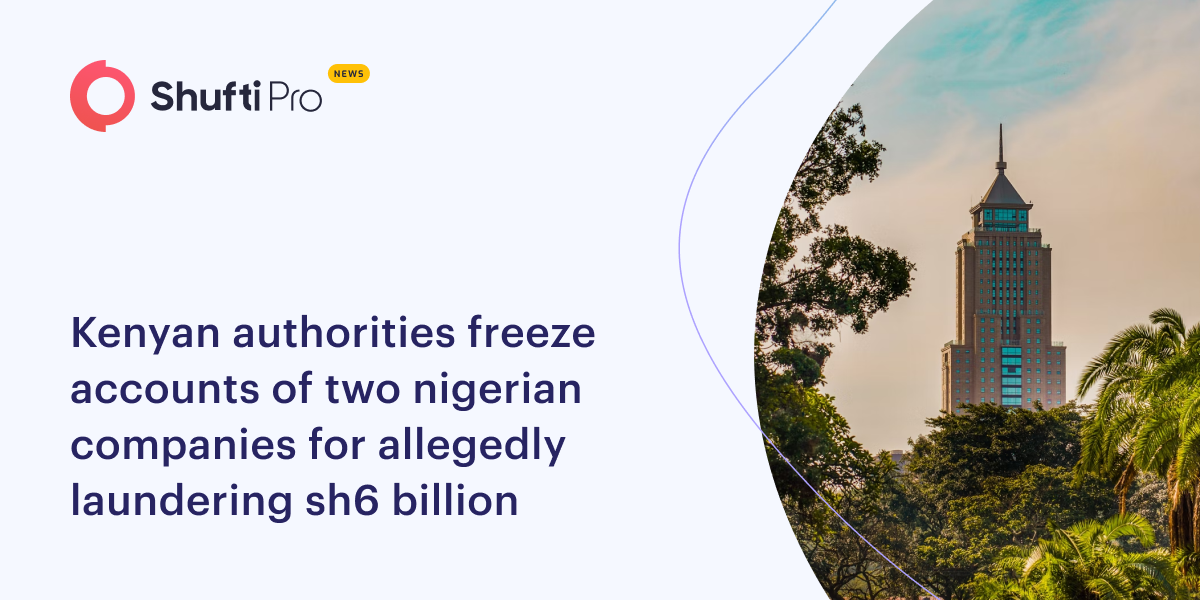 Explore More
Explore More
News
Germany and Austria to Adopt Digital KYC for Customer Onboarding
Banks and financial institutions are always searching for ways to impress the customers and the d...
 Explore More
Explore More
News
CBN, NFIU to Monitor Illicit Crypto Transactions in Centralized Exchanges
The CBN and NFIU have been urged to track illicit transactions in cryptocurrency by engaging with...
 Explore More
Explore More
News
MGA Issues 10 Warnings and Revokes 6 Licenses of Gaming Operators
MGA issued ten warnings and revoked six gambling licences in 2022. According to the report, the M...
 Explore More
Explore More
News
Former NFL Player Guilty of Identity Theft, COVID-19 Relief Fraud
Ex NFL player has been found guilty to one count of unauthorized access device fraud and one coun...
 Explore More
Explore More
News
EGBA Introduces New Guidelines to Prevent Money Laundering in Gaming Industry
EGBA (European Gaming and Betting Association) has announced new guidelines to improve the anti-m...
 Explore More
Explore More
News
FATF Points Out Jurisdictions with Inadequate AML/CFT Measures
After the Financial Action Task Force issued public statements regarding updates to its lists of ...
 Explore More
Explore More
News
FMA Sues Tiger Brokers for AML/CTF Breaches
The Financial Markets Authority (FMA) has filed court proceedings against Tiger Brokers for alleg...
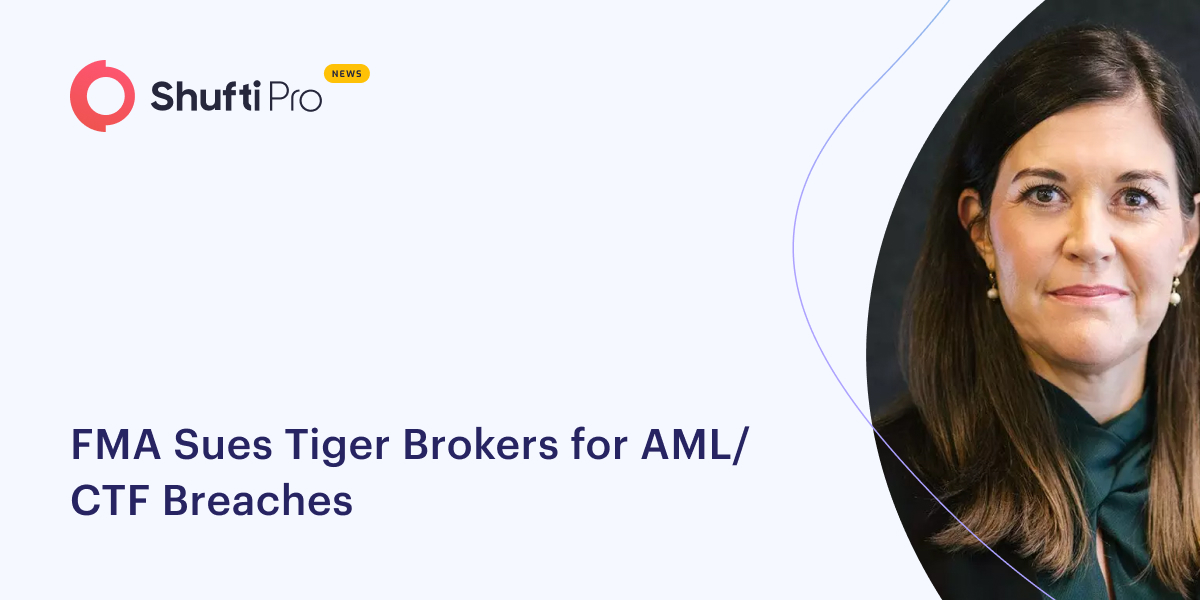 Explore More
Explore More
News
US Sanctions Russian Crypto Firm Over Ransomware Payments
Suex, a Russian crypto OTC broker, was involved in facilitating ransomware payments and has been ...
 Explore More
Explore More
News
Law firm Clyde & Co. fined $635K for Breaching UK Money Laundering Laws
Global law firm Clyde & Co. was fined £500,000 ($635,613) on 11 January for multiple breaches...
 Explore More
Explore More
News
Ransomware attacks rise as criminals target remote working
Ransomware attacks are getting bigger and bolder at a time where many organisations are implement...
 Explore More
Explore More
News
Mishcon de Reya fined £232,500 for AML Failures
London’s leading firm, Mishcon De Reya has been fined EUR 232,500 over failing Anti-Money Launder...
 Explore More
Explore More
News
Morgan Stanley, Interactive Brokers Under Money Laundering Probe
The FBI, SEC, and other state agencies are now investigating why Morgan Stanley took on Rodriguez...
 Explore More
Explore More
News
FATF to Shorten Its Fifth Round of Mutual Evaluation to Assess Countries’ AML Regimes
The Financial Action Task Force has announced that it will shorten its fifth round of mutual eval...
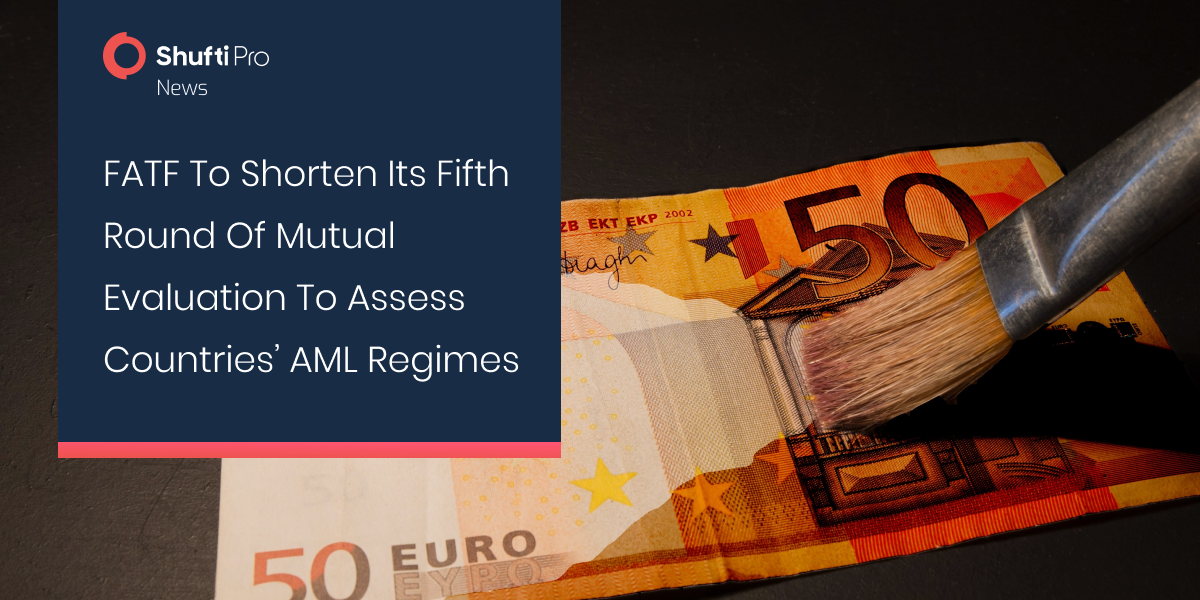 Explore More
Explore More
News
FATF to Decide Grey Listing of South Africa
FATF will announce its decision regarding the greylisting of South Africa on 24th February 2023. ...
 Explore More
Explore More
News
Central Bank of Nigeria Lifts Limit on $10k Deposits for Domestic Account Holders
Domestic account holders of Nigeria will be able to access the funds in their accounts without hi...
 Explore More
Explore More
News
FINMA Allows Chip Scanning and Geolocation for Digital Customer Onboarding
The FINMA now enables the scanning of microchips inserted in biometric ID documents as an element...
 Explore More
Explore More
News
El Salvador’s Adoption of Bitcoin as Legal Tender Raises ML/TF Risks
El Salvador has become the first country to accept Bitcoin as a legal tender.
On 8 June 2021, El...
 Explore More
Explore More
News
Swiss Watchdog FINMA Mandates AML Policies on Crypto
The new legislation is trying to combat money-laundering following a series of major scandals in ...
 Explore More
Explore More
News
Credit Suisse Settles French Tax Fraud & Money Laundering Probes for €238 Million
Credit Suisse accepted a settlement of 238 million euros to resolve a tax scam and money launderi...
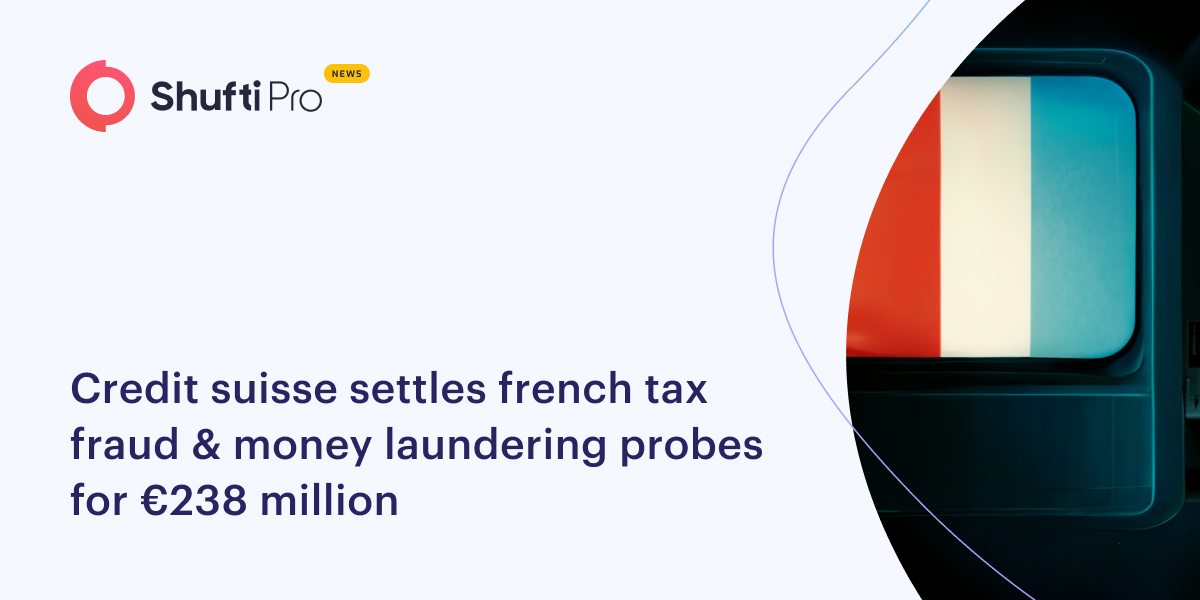 Explore More
Explore More
News
FATF Issues New BO Requirements to Address Pandora Papers
While addressing the Pandora Papers, the Paris-based global financial watchdog, FATF, has issued ...
 Explore More
Explore More
News
MBSB Bank to Implement BNM’s Requirements for Combating Financial Crimes
Bank Negara Malaysia announced additional security measures for financial institutions to strengt...
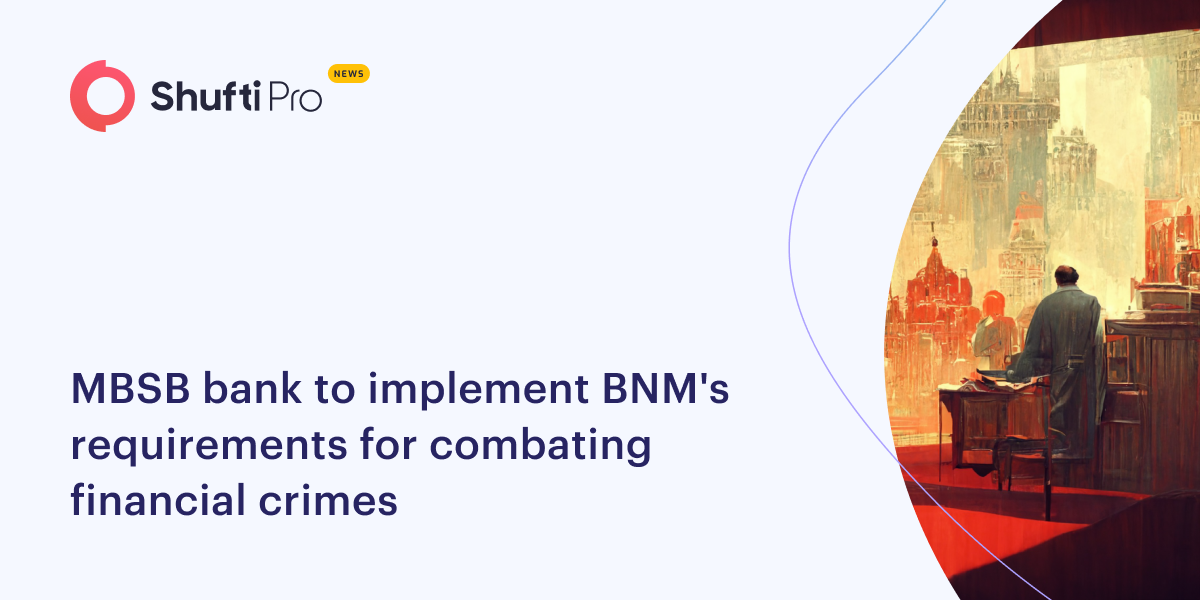 Explore More
Explore More
News
Californian man apprehended in Moorpark ID theft case
A 37-year-old man in the Californian city of Bakersfield was arrested on Wednesday on suspicion o...
 Explore More
Explore More
News
Swiss FinTech Firm LeonTeq ‘Strongly Refutes’ Allegations of Suspicious Transactions
Swiss FinTech firm LeonTeq has rejected allegations of suspicious transactions with possible link...
 Explore More
Explore More
News
FinCEN Fines Puerto Rican Bank, Bancrédito, $15 Million on BSA Violation
Puerto Rican bank, Bancrédito, was fined $15 million by the Financial Crimes Enforcement Network ...
 Explore More
Explore More
News
UAE Charges Six Companies with Dh3.2 Million for AML/CTF Violations
The UAE has fined six companies Dh3.2 million for failing to comply with Anti-Money Laundering an...
 Explore More
Explore More
News
Estonian Government to Strengthen AML Framework to Lift Crypto Ban
The Estonian Finance Ministry drafted AML amendments that will affect virtual asset service provi...
 Explore More
Explore More
News
US Senators Urge CISA to Incorporate Rules for Ransomware Reporting
US senators have urged the CISA to enforce new ransomware reporting rules amid a sharp increase i...
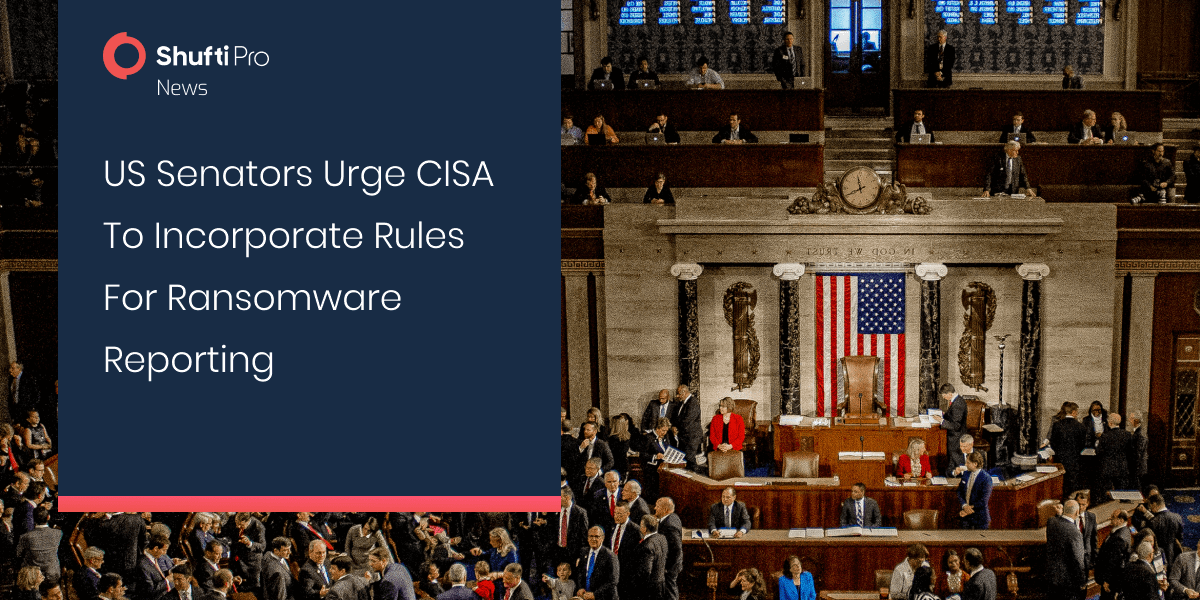 Explore More
Explore More
News
Californian man apprehended in Moorpark ID theft case
A 37-year-old man in the Californian city of Bakersfield was arrested on Wednesday on suspicion o...
 Explore More
Explore More
News
“Illicit Actors are Turning to E-commerce as a Money Laundering Tool” UAE Central Bank Discloses
The United Arab Emirates central bank sees increased risks of illicit financial flows emerging fr...
 Explore More
Explore More
News
Star Entertainment Group Hit with Record Fine of $100M for Money Laundering
Australia’s gambling giant Star Entertainment Group has been charged $100 million for failing to ...
 Explore More
Explore More
News
Deutsche Bank to Revise its Compliance and Risk Management Functions
Deutsche Bank is working on reforming its compliance function and risk management measures. The b...
 Explore More
Explore More
News
WHO launches blockchain platform to fight COVID-19
On March 28 the World Health Organization (WHO) collaborated with major blockchain and technology...
 Explore More
Explore More
News
Westpac CEO Brian Hertzer Resigns Amid Money-Laundering Scandal
The chief executive of Westpac Banking Corporation, Brian Hartzer, has resigned and the chairman ...
 Explore More
Explore More
News
Credit Suisse Held Accountable for Money Laundering in Swiss Cocaine Cash Case
Credit Suisse was declared guilty by the Swiss Federal Criminal Court of deficient measures again...
 Explore More
Explore More
News
Singapore Central Bank to Utilize AI Technology to Combat Money Laundering
The Monetary Authority Singapore (MAS) seeks to utilise AI technology to bolster the security of ...
 Explore More
Explore More
News
FATF Finalizes Key Working Areas in its Fifth Plenary Meeting
FATF’s fifth plenary meeting consisting of 206 members of the Global Network and Observer organiz...
 Explore More
Explore More
News
Money Laundering to Remain a Significant Challenge with Spike in Online Crime
Senior officers of Garda have indicated the rapidly rising problem of money laundering as the big...
 Explore More
Explore More
News
FIAU Slaps Triton Capital Markets Limited with €227,000 Fine for AML/CTF Breaches
The Financial Services Analysis Unit (FIAU) FIAU has fined Triton Capital Markets Limited €227,0...
 Explore More
Explore More
News
UAE Confiscates Assets Worth $354 Million to Crack Down on Money Laundering
UAE stepped up and seized $354 million worth of assets from March to mid-July 2023 in the fight a...
 Explore More
Explore More
News
Crown Casinos Fined $450 Million for AML Failures
Casino operator Crown should pay a fine of $450 million for 546 violations of anti-money launderi...
 Explore More
Explore More
